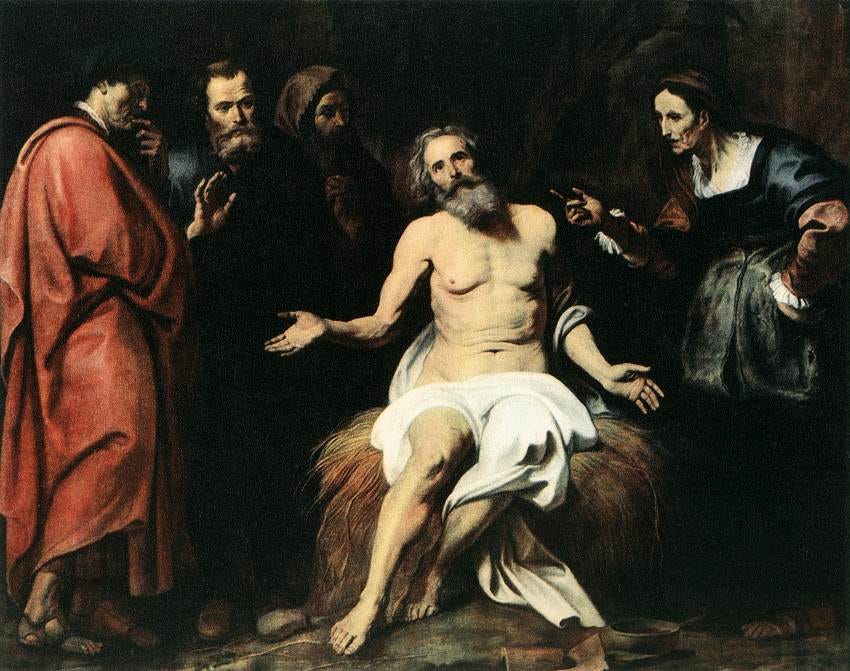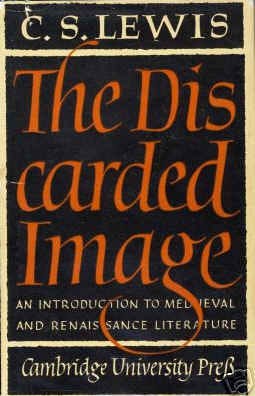Dear reader,
“Patience is a virtue,” so the proverb goes. It’s an expression that dates back to the early medieval era, from a poem called Psychomachia that narrates the battle of good and evil. The vices and virtues are personified, and among them, Patience fights against Wrath. Even earlier than this, Aristotle describes virtues as means between two vices. Patience moderates between the vices of excessive rage and of a lack of spirit. St. Paul, too, speaks about patience, although in the category of “fruit of the Spirit.” Paul identifies patience as one manifestation of the Spirit’s presence, as evidence that the Spirit is working.
As I’ve been contemplating patience recently, two related ideas have been at the front of my mind: attention and hope.
Franz Kafka links patience with attention in his reduction of carelessness to impatience. Carelessness and impatience are the cardinal human vices, Kafka argues, the reason for Adam and Eve’s expulsion and continued exile from the Garden of Eden.
Attention’s relationship to hope comes from attentiveness’ refusal to force through our desires and ideals on our families and communities. Instead, patience requires an attentiveness to others in their particularity—their particular needs, particular gifts, particular callings, particular burdens. It requires us to take the time to truly know, so that through knowing we might better love. This takes patience.
Not a patience that is a resignation to the status quo, but a hope. Jean-Louis Chrétien connects patience with hope in calling patience “the signature of adult and veritable hope, the movement through which it sees the present, bores and penetrates into it to see that to which it is going to give birth, far from its waiting being like a dream that makes it forget the present, no more than the resurrection makes it forget the cross.” Patience is oriented towards the future. It waits now, knowing that there will be an end to the waiting, a time of completion and perfection, when what we desire—when the kingdom of God—will come to fruition.
Resignation has no such orientation. It lets the past and present, with all time’s failures and insufficiencies and suffering, to so dominate our hearts and minds that there is no room for hoping in a future that looks any different than what we have already known and experienced.
To be resigned is to cease to hope, to shrug one’s shoulders at the status quo in acquiescence and a sense of one’s own inability—worse, of God’s inability—to bring about change. This resignation can contribute to the laxity, the lack of spirit, that Aristotle identifies as the deficiency of patience.
By contrast, to be impatient is a posture of excess—one of domination and pride. Impatience places the self at the center of the world in such a way that seeks to force others in line with one’s own desires and goals: my way in my time. No attention is required, because all that matters is the self.
Patience recognizes the integrity of the Other—you are not mine, time is not mine. We wait on someone else—the Spirit.
The impatient or resigned person cannot hear the Spirit, the former because she cannot submit to another’s purposes within another’s time frame; the latter because she cannot imagine that the Spirit might do something new, something powerful.
Neither has the attentiveness required of true patience, the former because she will not clear her vision of her self and the perceived grandeur of her own plans and ideas long enough to truly see another; the latter because she can’t be bothered to exert effort for something she does not believe will be worthwhile.
Impatience and resignation are not new vices that choke out patience, but there are particular ways that our culture encourages them, particularly in our digital and political cultures. A few observations…
Digital culture gives the illusion of a great deal of control. When this illusion is revealed–when we realize that we do not, in fact, have the control that we think we ought to have–impatience comes easily.
Digital culture floods our attention with violence and suffering, so that we become desensitized and resigned. We avert our attention as a coping mechanism, and we cease to be active towards change.
Political culture, in its deep polarization, refuses to attend to the political enemy, lacking patience in taking care to understand their arguments and their perspectives.
Political culture, in its globalization, shrinks our sense of agency and keeps our attention focused on the world stage, where we can do little, rather than on our communities, where we can be present in real and authentic ways.
To return to Chrétien, the metaphor of the pregnant woman is a fitting image for patience. Patience involves waiting and inactivity, to some extent—at least, an inactivity in regards to bringing the baby to the point of delivery. At the same time, there is a great deal of activity that is prompted by attention and hope, as preparations are made for the arrival. Even as the pregnant mother groans over morning sickness, heartburn, Braxton Hicks, and other physical afflictions, she prepares the home and reorients her life to accommodate the little one that is to come.
Not all physical ailments requiring patience have the same kind of hopefulness. This week I have been laid flat with back pain, a suffering which has required me to pay more attention than I want to give to my body’s needs. And as far as I can tell, there is nothing like the sweetness of a new baby to encourage me to be patient with hope.
But that, I think, is exactly what hope requires of us in patience. We admit that we cannot see any good that might come, or the beginning buds of the fruit that we hope for. Perhaps the branch is even dead, with no natural ability to bear fruit. In these circumstances, patience is a virtue, a fruit of the spirit, exactly because it requires us to look outside of ourselves. Looking to the One who is Patience, we can let go of the grip we have on our own time and our own plans for ourselves and for others; we can attend carefully to others in order to love; we can refuse to be resigned to evil and injustice.
The Patient Job, Gerard Seghers (1591–1651)
June Reading:
Great physician of our souls and bodies,
have pity on your fragile creation.
Look tenderly on your beloved children.
Father, you are everlasting health for those who believe in you
Make us well in body, spirit and mind.
Christ, you who specialises in broken bodies, massacred hopes, and disabled futures,
Gather us into your arms
As you gather all your broken people
Into your body,
broken for us.
Life-creating Spirit,
Breathe through our pain.
Be now us strength and defense.
Guard us against discouragement.
Renew us in hope, trust and patience.
For you are all goodness and joy continual,
And you will bring us to the fullness of life.
Amen.
-Bei-En Zou
On the road with you,
Laura
My book is out! Check out I am: Stories from the Gospel of John on Amazon, or on the publisher’s website.









